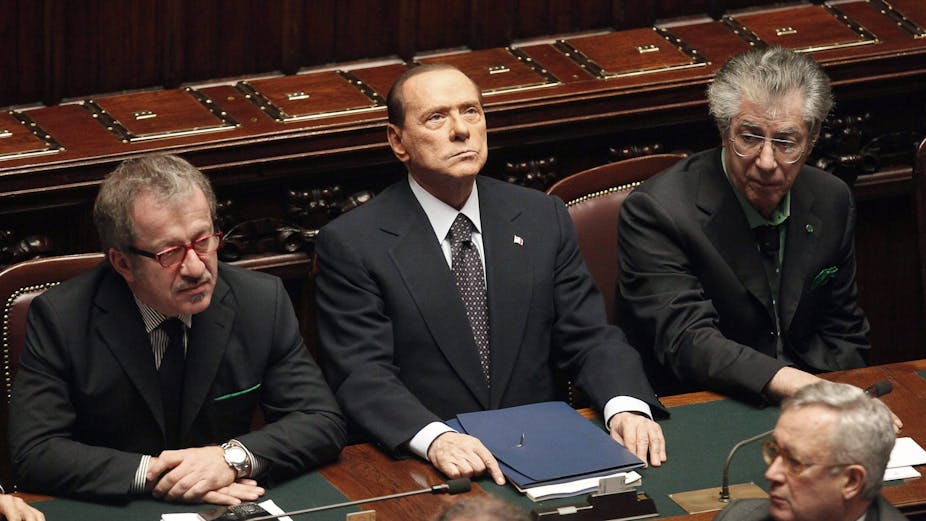Italian Prime Minister Silvio Berlusconi appears set to become the largest political casualty so far of the Eurozone’s continuing inability to resolve its massive sovereign debt problems.
Berlusconi, who has agreed to resign after losing the support of his parliamentary majority, joins Greek Prime Minister George Papandreou who was unseated after saying he would call a referendum on austerity measures that are part of the Eurozone’s rescue package.
Several weeks ago, the government of Slovakia was also spilled after it threatened to block the package.
As the crisis moves from a purely economic realm to a political one, it is worth pondering what socio-political (and perhaps even economic) mutations will occur in countries struggling with massive debt.
Could this turmoil be the growing pains of societies that will come to reform their representative systems?
Throughout the economic crisis besetting the Eurozone, we have seen the constant use of the term “sovereign debt”. But just whose debt is sovereign debt?

Europe is for the most part self-styled or portrayed by others as democratic. In this telos we would then come to think of sovereign debt as meaning the debt of its citizens. I’m certain that more than a few who are familiar with the inter-citizenry arguments in Europe have heard the usual quip about “lazy” Greeks reaping what they have sown.
I think that that is both unnecessarily hurtful and inaccurate. Let’s consider a very important – and recent – book, The Future of Representative Democracy, edited by Sonia Alonso, John Keane and Wolfgang Merkel (with the excellent help of Maria Fotou).
Using this book as a lens, we are confronted with the reality of past and present representative systems. In Greece, the complex plurality of individuals voted for a government and did not give up their power by mandating leaders to have it for a time.
This plurality allowed a variety of individuals to lead the government: in other words, the citizenry is still sovereign and not the government.
This explanation seems to lead us to the conclusion that sovereign debt, at least in a government and society that thinks itself democratic, would then have to be wholly the “people’s”.
But, this is not so. When a government is elected into some form of leadership, the “people” can reward or punish that government in the next election (or so the idea goes).
What the people cannot do, however, is remove the financial costs of a previous government. Indeed, the “people” have very little involvement in planning state finances (or even the finances of lower tiers of intra-state government).

This, I reason, helps to explain why so many currently feel their country’s debts to be so odious: it is because they are not viewed as legitimately theirs. Due to this, we should take care to state “government debt” and not “sovereign debt”.
This begs the question that should there have been creative institutions that garnered the agreement of a complex plurality (something highly unlikely it seems), would things be any different?
Perhaps. If there was some way people could more easily critically evaluate successive government expenditures, or perhaps even force limited-term governments to spend accordingly towards a set of the citizenry’s long-term goals, then individuals may agree that indeed, the debt is theirs.
It’s all rather speculative and one could easily argue that this would then lead to vicious infighting between citizens and not much would be different from contemporary times.
What does it really matter if it is the debt of successive governments or of the “people”? In other words, does it really matter whose sovereign debt it is?
The ultimate aim of this discussion is not to place blame squarely with successive governments (that was the penultimate aim!). Rather, it is to bring to the forefront the clear and present need for us to reform representative systems.
I think that what we are collectively experiencing now in Europe or the US (for the sake of this discussion), are socio-political growing pains.
The mutations from each society that we now see or that are still to come will most likely forever change the face of representative systems: perhaps toward greater participatory democracy in these systems so as to render greater democratic legitimacy to state finances.
However it plays out, I think it will very much end with qualitatively “good” reformed procedural outcomes.
Read more:
Berlusconi’s going, but there’s no Silvio bullet for Italy’s debt

